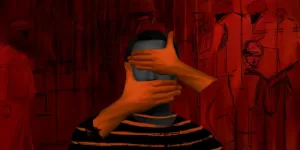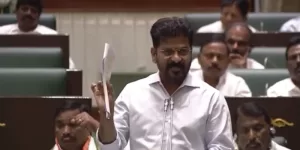On September 23, 1917, Bhimrao Ambedkar cried like a baby under a tree in Vadodara.
As the newly appointed military secretary of the Baroda state, Ambedkar moved to the city of Vadodara. But nobody would rent him a house because he was an “untouchable”. He eventually had to lie about his caste identity to the owners of a Parsi inn to get a place to stay. But when it was discovered that he was Dalit. he was attacked by his Parsi neighbours.
Ambedkar – who had studied at New York’s Columbia University and the London School of Economics – was forced to flee like a fugitive and spend a night under a tree.
He later recounted that he “wept bitterly. After all, I was deprived of my precious possession – namely my shelter.”
I grew up in a village just 40 kilometres away from Vadodara. My parents still live there.
How much has casteism changed since 1917?
I now live in the UK, where I work as a corporate lawyer. I visited my parents for two weeks in August.
I have two brothers. They were not as lucky as I have been and were unable to study beyond high school. Since they found it difficult to find good jobs, I set up a photocopying business for them in 2004.
But with the Covid lockdown of 2020, they had to shut their shops. When they reopened in January this year, the income from the business was insufficient to sustain both of them. We decided that this business would be handled only by our elder brother and I would set up another business for the younger one.
After speaking with a few people to get ideas about potential gaps in the market, we decided to set up a stationery shop in a neighboring town. I started looking for a shop to rent there.
I found three shops. When I went to negotiate with the owners of the first two shops, I did not want my caste identity to become a hurdle so I told them I was a corporate lawyer in the UK and that I was going to finance the business. Both quoted me an exorbitant amount of rent.
When I went to see the third man, I changed my approach. I did not tell him what I did for a living.
That meant, however, that he did not have a basis on which to try to form a bond of trust. So he immediately looked for another potential source of familiarity: he asked me about my caste identity.
I had to make a choice. If I told him my real caste identity, he would not rent the shop to me.
I chose the safer option. I told him I was Chavda, a name that is used by members of both “pure” and “impure” castes.
“Oh!” he said. “We are of the same caste! I have nothing to worry about.”
I got the lease – only because I lied about my caste identity.
This was not the first time I have had to do this.
In 2015, when I moved from London to Delhi to join one of India’s top law firms, I rented a flat in one of the city’s poshest parts of the city so that we could be as close to my daughter’s school as possible. While in a conversation about our neighbours with someone familiar with the building, he suddenly warned, “Don’t be friends with the flat on the second floor – they are from a scheduled caste.”
Here was a person who lived in one of the city’s most affluent neighbourhoods who thought a Dalit did not deserve the friendship of a person from a privileged caste. I wondered if they would have rented me a flat if they had known my caste identity.
Although I was a partner with one of the country’s top Indian law firms, I did not have the courage to reveal to him that I too was from a scheduled caste.
It always feels unnatural, unwarranted and imposed when I have to identify myself as Dalit. Because caste identity is an artificial construct. The caste system does not need to exist.
However, growing up in an Indian village, there was no escape from my imposed identity. Everyone in the village knew what caste I had been born into.
But when I was away, where people didn’t know me, I always lied when they asked me about my caste.
When I went to study at National Law School in Bangalore, there was again no escape as I had received the benefit of reservations as a Dalit. I assumed that everyone knew my caste identity because of the way our names were listed in the register of students.
Thus, until I was 22, I was mostly out as Dalit against my will.
When I started working in Mumbai and later in London and Singapore, a comforting cloak of anonymity descended. When people asked me about my caste identity, I mostly lied – although I worried about being found out.
On social media and in my articles, however, I have been open about my caste identity. But this openness has often made me anxious.
I continue to lie about my caste identity in situations where I foresee a disadvantage in revealing that I was born Dalit.
Thus, there is no real coming out in caste.
It’s always in and out.
I had a conversation about this recently with a friend who was born Dalit. He is a very successful executive at a major global corporation and works in Europe.
He has changed his last name as he does not want people to know of his caste position.
When we discussed the dilemmas of revealing our caste identity, he asked why we would willingly bring this curse of the Hindu order upon us.
I am crying dry tears as I write this on September 23, 2023 – 106 years after Ambedkar cried like a baby in Vadodara.
(Rajesh Chavda is a corporate lawyer in the UK. Courtesy: Scroll.in.)




